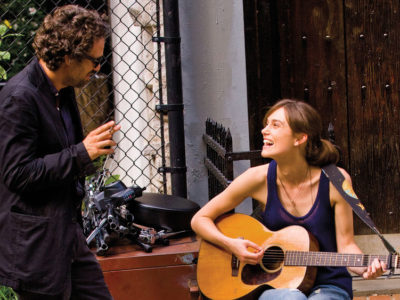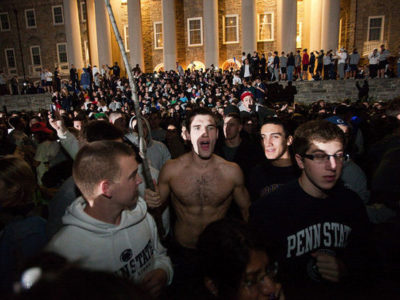Also by Josh Kok
Hey aspiring musicians, despite what Ed Sheeran might say, college could be for you. If that’s the case, check out these 10 talent-driven universities to find your future home. They boast endless music concentrations, plenty of stage performance time, alumni with Grammys, master classes and an environment that’s in sync with your tune.
If rehearsal time is sacred time, you will find your symphony and other aspiring musicians at these 10 schools for musicians.
10. University of Michigan
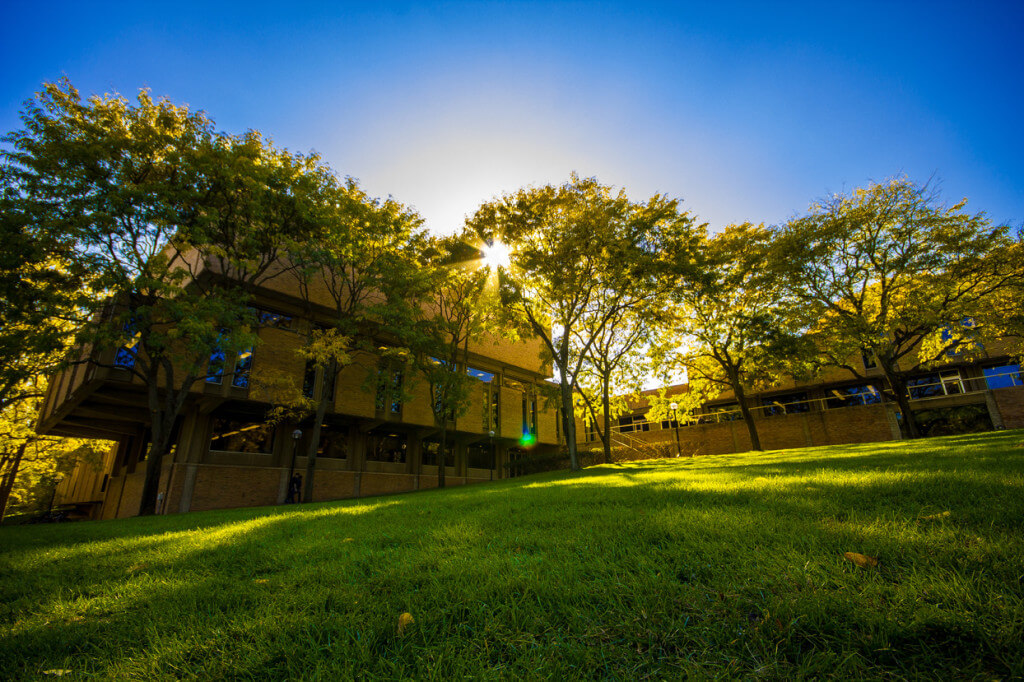
While known for prestige in the sports world, the University of Michigan also has an incredible music program. The School of Music, Theater and Dance delivers at least 12 main stage shows per year, including three musicals, two operas and multiple concerts. Aspiring musicians and students of all talents and departments are invited to perform. Harry Potter and Glee fans alike know that alum Darren Criss and his production company Team StarKid produced “A Very Potter Musical” during their undergraduate careers at UMich.
9. University of California-Los Angeles
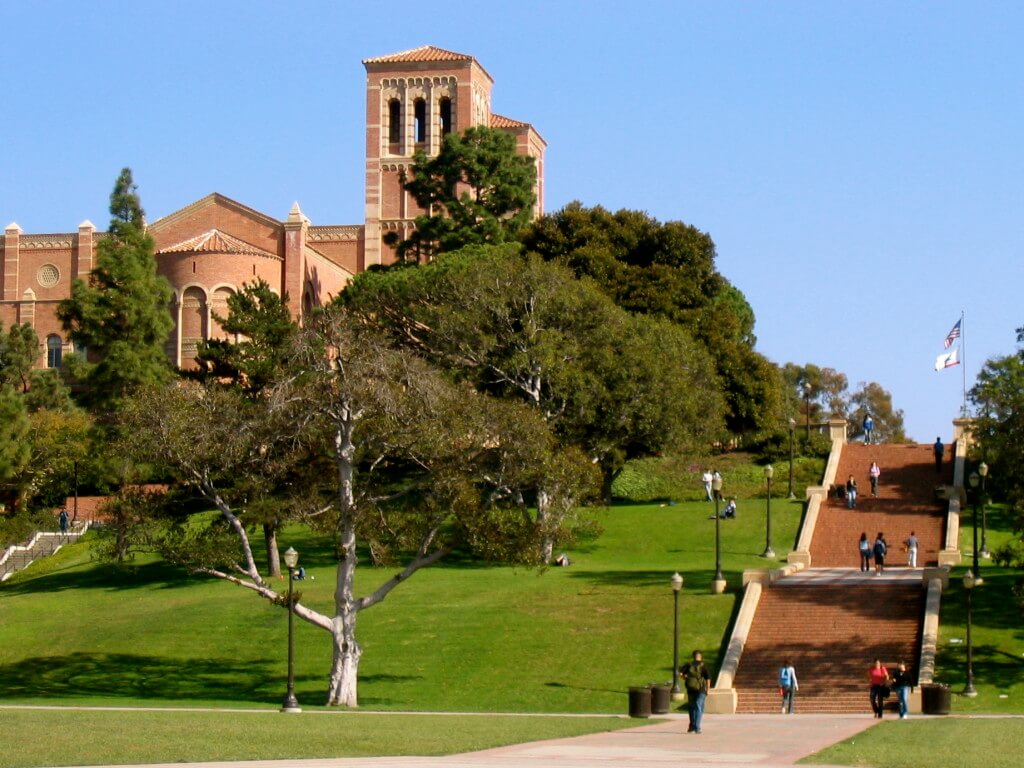
As cliché as Los Angeles seems for producing your favorite musicians, some of that talent stems from UCLA. One such wonder was Randy Newman, the artist behind Toy Story’s “You’ve Got a Friend in Me.” As for stylistically contemporary graduates, Red Hot Chili Peppers front man Anthony Kiedis was also a product of the university. While one might think having such a popular rock band alumni would bring in other large pop bands, the majority of UCLA’s musical events focus on showcasing student and faculty skills through recitals of different ensembles. Groups like the UCLA Philharmonic and Wind Ensemble are a few of the student performing groups listed to play throughout the coming months. For students currently attending or near UCLA, this November the Department of Music will be hosting a symposium and concert based on the theme “music in the age of augmented reality.” Pretty neat, huh?
8. Northwestern University
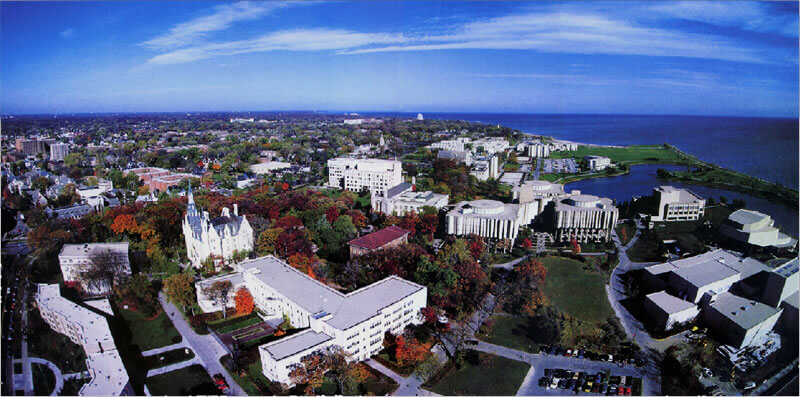
Northwestern’s music program sets itself apart through its music events and exclusivity. One shining example is the Dover Quartet, an internationally renowned strings group that will be playing three concerts in addition to teaching master classes. With 18 total ensembles, Northwestern empowers musical expression for aspiring musicians from opera to small jazz ensembles. The Pick-Staiger Concert Hall features performances from artists like pianist Robert Schumann, Sylvia McNair and the Sons of Serendip. Students who are looking for the public school feel with the strength of a private music should take a visit to Northwestern.
7. New York University

“Sweet Caroline,” Forever in Blue Jeans,” “I’m a Believer;” if any of these are going over your head, then you’re probably not familiar with iconic artist Neil Diamond. New York University was his former home. Aside from assisting in the education of Diamond, NYU boasts a total of 22 ensembles. To help support and showcase its world-class musicians, the NYU Music Department focuses its events around musicals and student recitals. NYU actually has two separate programs for musicians: The Steinhardt School of Culture, Education and Human Development and the Tisch School of the Arts. They include music business, music technology, performance majors (both instrumental and vocal) and dance and drama. NYU’s city location is ideal for anyone pursuing a career in vocal or instrumental performance, dance or drama (Hello, Broadway). Plus, the school is super accepting: “Our Welcome Week had a drag bingo event and kids actually showed up in drag. And people applauded that rather than shut it down,” said Kaitlyn Edicola, a freshman at NYU Steinhardt.
6. University of Southern California Thornton School of Music

California’s beautiful weather may make this school more appealing than some of its colder New England counterparts, but there are legit reasons USC Thornton rocks. Its music industry program was one of the first and is still considered one of the best. It preps students to succeed in every facet of the music world, including management, radio, publishing and instrument manufacturing. Since 2007, faculty and alumni have won 15 Grammys.
Related article: The Ultimate Back to School Playlist
5. University of North Texas
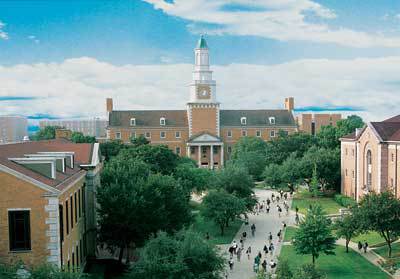
The University of North Texas Department of Music accommodates 26 unique ensembles, including the keyboard and electronic instruments ensemble titled “Zebras Contemporary Repertory Ensemble” and the Jazz Guitar Ensemble. The majority of musical events are recitals of music students and guest artists such as drummer Chad Wackerman, who performed at Recital Hall on September 11. Wackerman was one of only three drummers to ever play in a band with musician Frank Zappa. Did I mention UNT educated Meatloaf? Not the food, but the rocker and Celebrity Apprentice guest.
4. Berklee College of Music
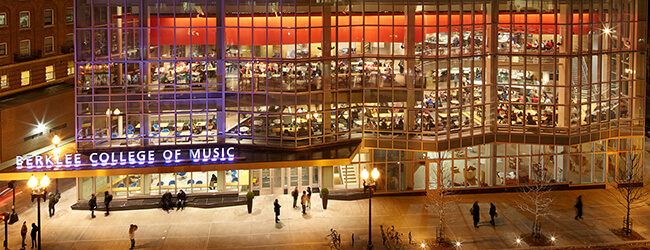
Slammed in the heart of Boston, Berklee offers 12 different music majors, ranging from composition to film scoring to music therapy. Admission to Berklee hinges on a student’s live audition and the school is extremely competitive, boasting a 20 percent acceptance rate. Famous alumni include John Mayer, Rivers Cuomo of Weezer and Brad Whitford of Aerosmith. Berklee bursts at the seams with a whopping 350 different music ensembles. Its events page includes concert listings for bands such as Iris Lune, an indie rock group, and The Dingo Babies, a folk rock outfit.
3. Boston Conservatory
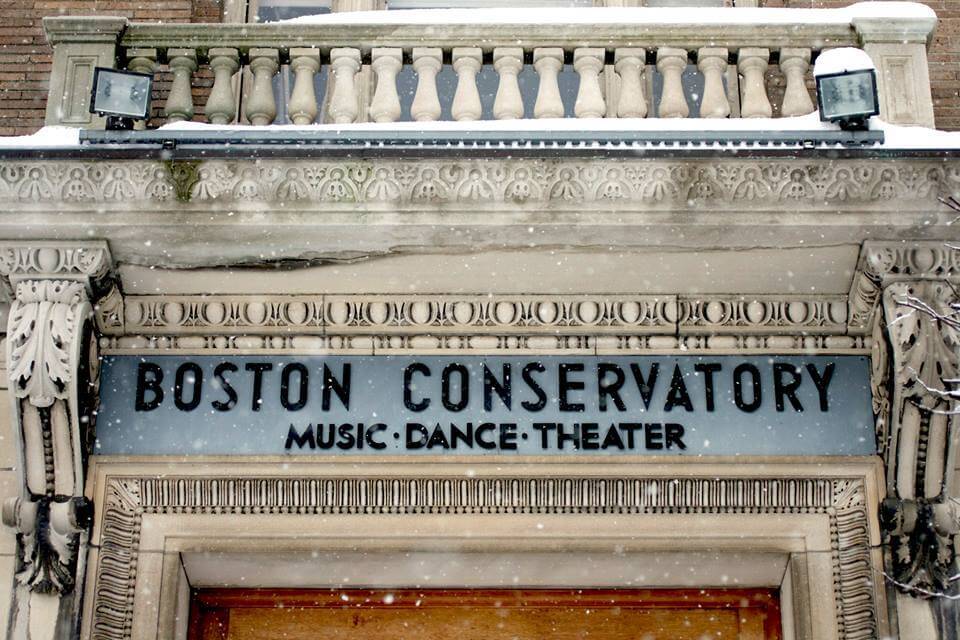
Another Boston gem, BoCo specializes in music, dance and theater. American Idol alum and SMASH star Katherine McPhee and Broadway’s David Benoit and Alysha Umphress are among BoCo’s many famous alumni. The school uses some of Boston’s gorgeous brownstones as student housing and holds an incredible six to one student to faculty ration (aka tons of face time with super-talented professors).
2. Juilliard School of Music
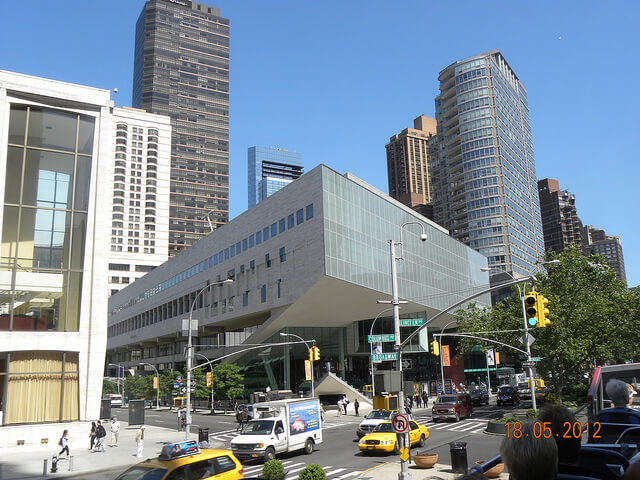
Did you know Miles Davis, the amazing jazz musician inducted into the Rock and Roll Hall of Fame, graduated from the Juilliard School of Music? Sure, Juilliard is smaller than most universities (enrollment hovers around 500 undergrads), but that doesn’t detract from its prowess in music. With a mix of jazz orchestras and instrument-specific competitions, Juilliard is a great school for performers to hone their craft. Juilliard calls Lincoln Center, New York its home, so finding performance opportunities is never difficult for students. Its acceptance rate continues to drop, but it currently stands somewhere between five and seven percent, making Juilliard one of the most competitive schools for aspiring musicians in the world. But the competition is worth it, alumni include So You Think You Can Dance judge and choreographer Adam Shankman, Viola Davis and Yo-Yo Ma.
1. Curtis Institute of Music
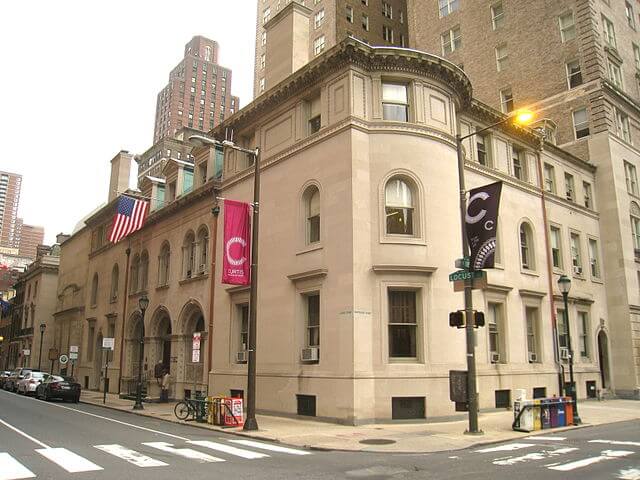
Curtis, located in Philadelphia, is often referred to as the most selective higher learning institution in America, boasting a three percent acceptance rate. All students attend on full scholarship because let’s face it, they earned it. Unique to Curtis’s program is its method of acceptance: It only takes enough students to fill an orchestra and an opera company, save for composers, conductors, pianists and guitarists (there are around 165 students at Curtis). The incredibly small class sizes (almost all of the classes have less than 20 students) means tons of one on one time with an incredible group of professors. Additionally, Curtis provides its students with over 150 performance opportunities throughout the year, not just in Philly, but across the country and even internationally. Can you imagine your school sending you to Australia for a concert?
Applying as a Music Major
Aspiring musicians definitely have to get over stage fright because auditions are required for a spot in these competitive music programs. You’ll also have to submit the Common App or the general application for the school if the college has non-music programs as well. And be prepared if they ask for a resume along with the classic letters of rec, personal statement and audition.
Learn how to create a master resume
“Most high level music programs will begin their audition process with a prescreening round (only required for more competitive instruments such as voice, violin and piano). This usually means that the singer auditioning must record two to four songs to send in. Each school might ask for something different. Some want the recording to be video; some don’t care if it’s just an audio file. Some will require that the singer choose pieces in different languages or from different time periods in order to get variety, some might leave it up to the singer. Singers are usually required to have sent in their recordings along with an application fee by mid October or early November,” Northwestern voice major and junior Laura Roth said.
If all goes well, you get the opportunity to audition. While the powers that be normally won’t require you to audition on sight, but aspiring musicians do love to leave a good impression. Some schools even offer voice lessons from teachers at the school you’re considering, but that can definitely take a chunk out of your wallet. To prepare for an audition like a true musician, rehearse at least three or four songs. The first song will be the one you choose and the faculty likely picks the second. Hopefully that pianist has your back, am I right?
“The audition process can be pretty emotionally taxing,” Roth said. “Since I auditioned for a fair amount of schools I ended up having to travel most weekends in January and February of my senior year. Some schools will have multiple sites for auditions, thank goodness, so I didn’t have to go far for some of them.” Aspiring musicians should be ready to make sacrifices and go the distance to get into the school of their dreams.
Read our master guide to the music major.
Career Path Opportunities
You don’t have to go full-on Mozart in the Jungle and make it into a high-class symphony to succeed in the musical world. Music teachers are definitely still a thing; after all, how did you get to learn your favorite instrument? If you like your intro class to music education, maybe you should focus your music major in this field. Or how about the emerging field of music therapy? Many aspiring musicians also study psychology or cognitive science to learn how to make a direct impact on the world with music. You can write scores for films or video games, become a songwriter in Nashville and so much more with a music major.
Aspiring musicians should check out these NAMM show companies want to hire music majors.
Check Out These Internships:
“For a student who does want to perform professionally, playing a summer festival is the equivalent of an internship. I think a lot of people don’t realize that,” Northwestern Career Advancement specialist Laura Myers said. That’s right, aspiring musicians, own the fact that hanging out at concerts can actually get you a long-term job after graduation. You just have the responsibility of playing on stage.
But just like any field of study, you might not get the job you’ve always dreamed of right out of college. “A lot of students would like to play in a professional orchestra after graduation, but those jobs can be hard to find, so a lot of time it’s about what else can I do?” Then you can snag an internship under the umbrella of “music arts administration.” You could promote events at various music charities, do marketing or fundraise for organizations while you work toward that performance job you’ve always dreamed of. Some hot internship locations include:
- Musicians without Borders
- Fender Music Foundation
- New York Symphony
- Chicago Symphony Orchestra
- Ravinia
- Lyric Opera of Chicago
Sport Your Music Love

Find Your Own Beet Racerback Tank: $24.99

Llamadeus Tee: $24.99
*Updated on December 9, 2016 by Meghan Gresk to include quotes, more information on applying and internships

